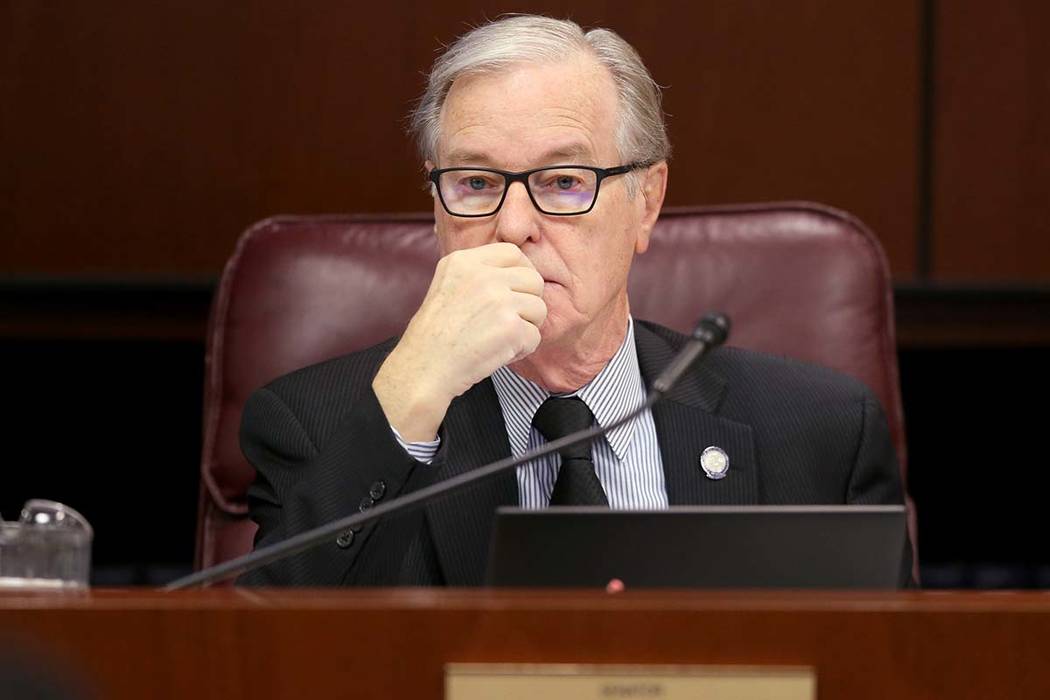COMMENTARY: Time is running out for public records reform in Nevada
Sometimes the gears of the Legislature get jammed for no good reason and only a massive outcry from the people can get them unstuck.
That’s where we are with Senate Bill 287, which would make government more transparent and accountable by adding teeth to the state’s Public Records Act. Sen. David Parks, the primary sponsor of the bill, and Right to Know Nevada, a broad, ideologically diverse coalition, have helped build bipartisan support for the legislation.
An inclusive process led to compromise amendments, yet SB287 is stalled in Carson City. That’s bad news for Nevada taxpayers, who often are left powerless when they can’t get public records they need.
The Nevada Public Records Act makes the “public books and records” of state and local governments open for inspection, a mandate that “must be construed liberally” by public officials in order “to foster democratic principles.”
In practice, however, the law is construed narrowly by many state and local agencies, and legitimate public records requests are often denied.
Many mistakenly believe it’s only reporters who care about public records. The truth is many non-journalists are also often frustrated in their attempts to get documents and data they need.
A disabled man was denied the records necessary to provide him with access to food and shelter, a harm rectified only by the intervention of his college-professor mother.
The Guinn Center for Policy Priorities has faced obstacles and delays in obtaining data from education agencies, depriving Nevadans of information necessary to evaluate how best to improve education policy.
The Incline Village General Improvement District refused to provide its own board treasurer with financial records, leaving residents in the dark about how money was being used.
This kind of government secrecy is anathema to a healthy democracy and the principles enshrined under existing law. And because government agencies face no consequences for breaking the law, requestors often are left with only one recourse: costly civil litigation that few parties can afford.
SB287 would ensure the Nevada Public Records Act operates as intended by establishing penalties for lawless behavior. It would prevent agencies from levying fees to frustrate legitimate records requests, and it would require public employees to help requestors find the information they seek.
It is unclear why SB287 has remained stuck in committee. It is sponsored by a bipartisan group of lawmakers, including Sen. Joyce Woodhouse, who is the chairwoman of the Senate Finance Committee, where it is presently stranded. It has widespread support among legislators from both sides of the aisle. And Gov. Steve Sisolak has made it clear he supports public records reform.
With only seven days left in the 2019 session and the Legislature poised to go on hiatus for 20 months, this critically important bill will die unless legislators make SB287 an immediate priority. And only you, the voters, have the power to adjust those priorities.
If you think government should be transparent and accountable to the people, please respectfully ask state senators to make SB287 a priority. You should contact your own senator and register your support at 800-992-0973 or 702-486-2626. And you should contact Senate Majority Leader Nicole Cannizzaro (775-684-1475 or Nicole.Cannizzaro@sen.state.nv.us) and Assistant Majority Leader Julia Ratti (Julia.Ratti@sen.state.nv.us).
Absent action in the next day or two, SB287 will die without ever receiving a vote. And government lobbyists, who have been paid by you this year to demand that government records remain as inaccessible as possible, will have won. Nevadans deserve better.
A previous version of this column incorrectly said the Guinn Center had to cancel education studies after failing to obtain data from the Nevada Department of Education.
Richard Karpel is executive director of the Nevada Press Association, the 95-year-old trade organization for newspapers and online news publishers in the state.

















